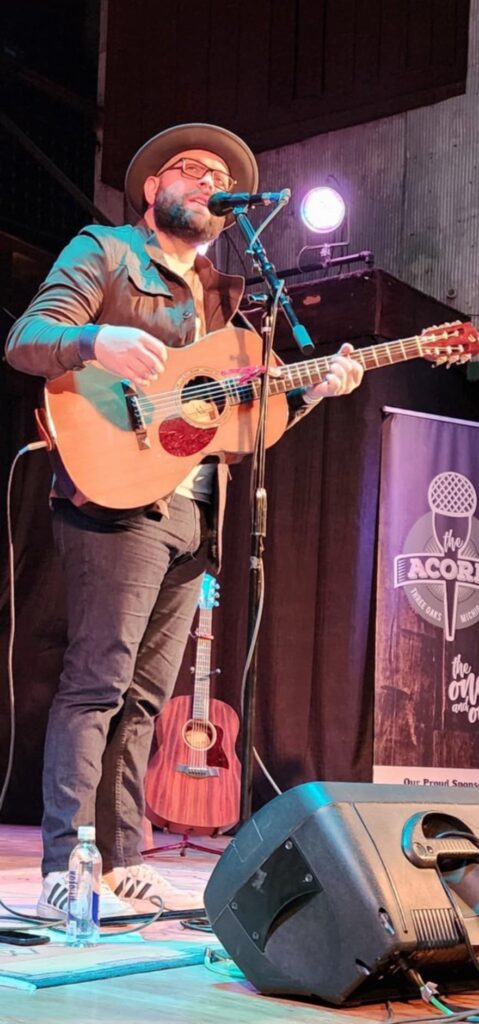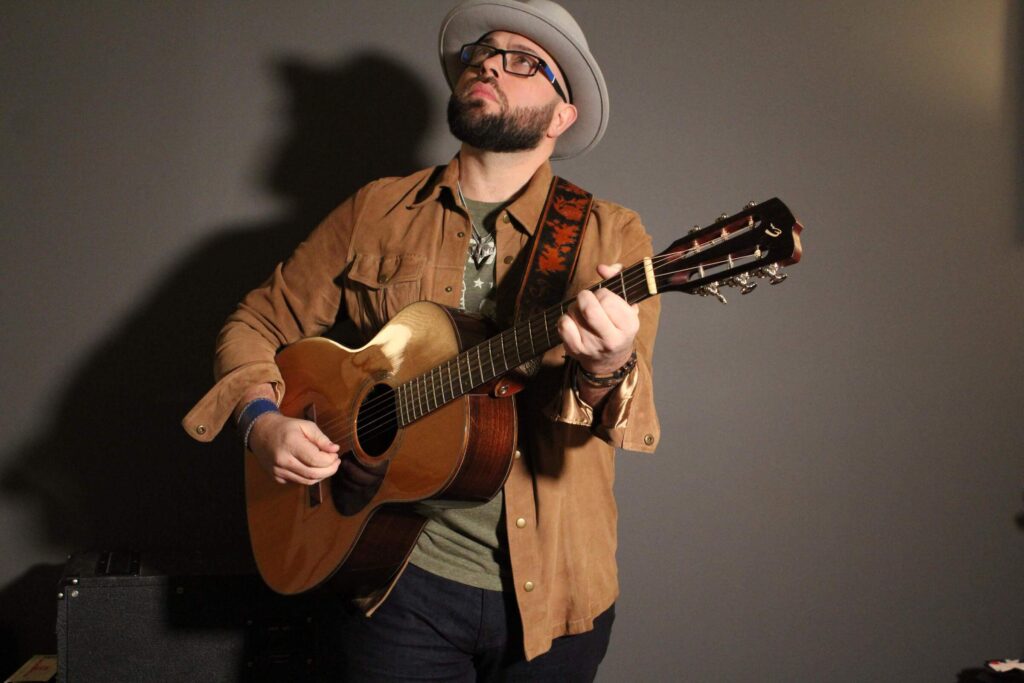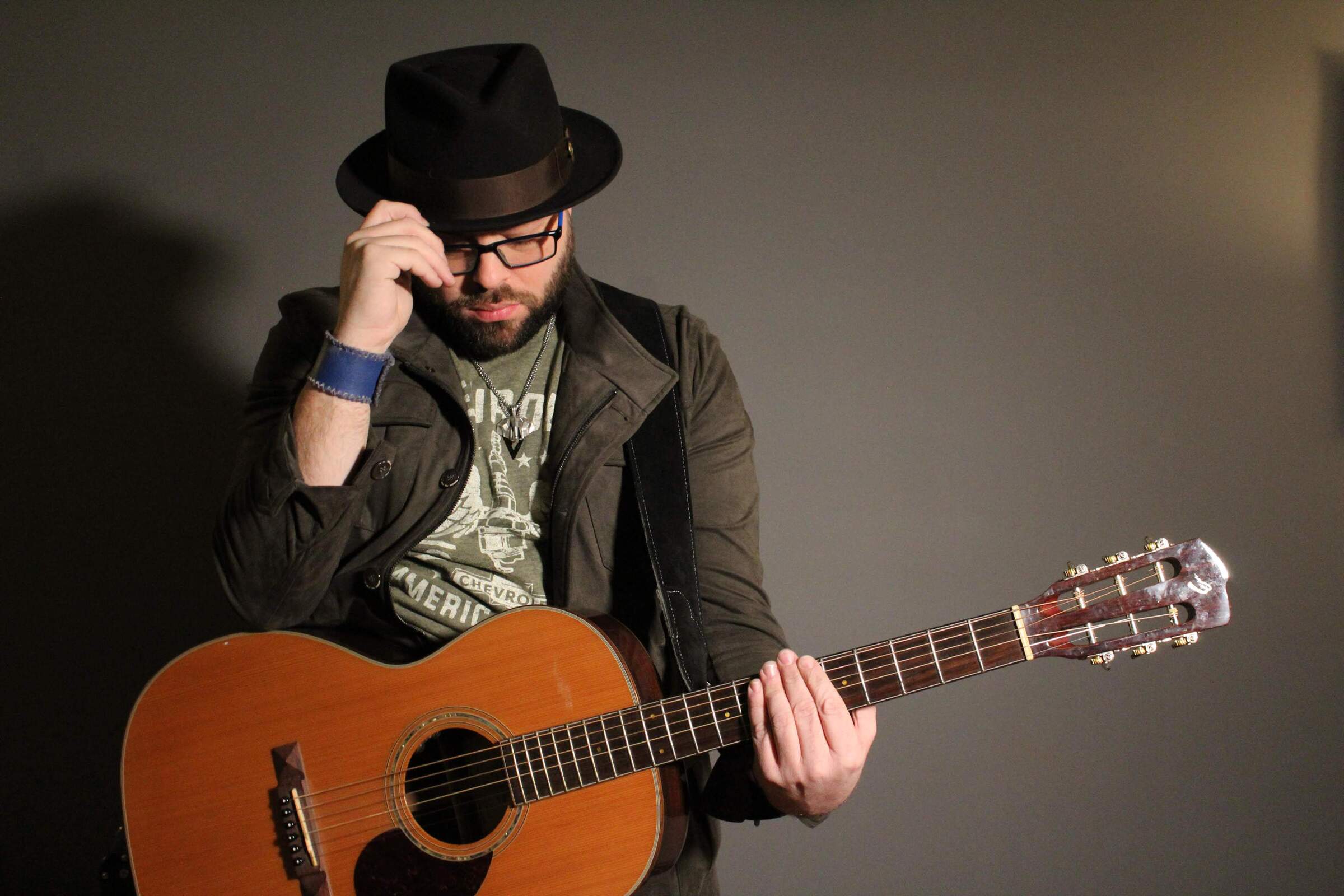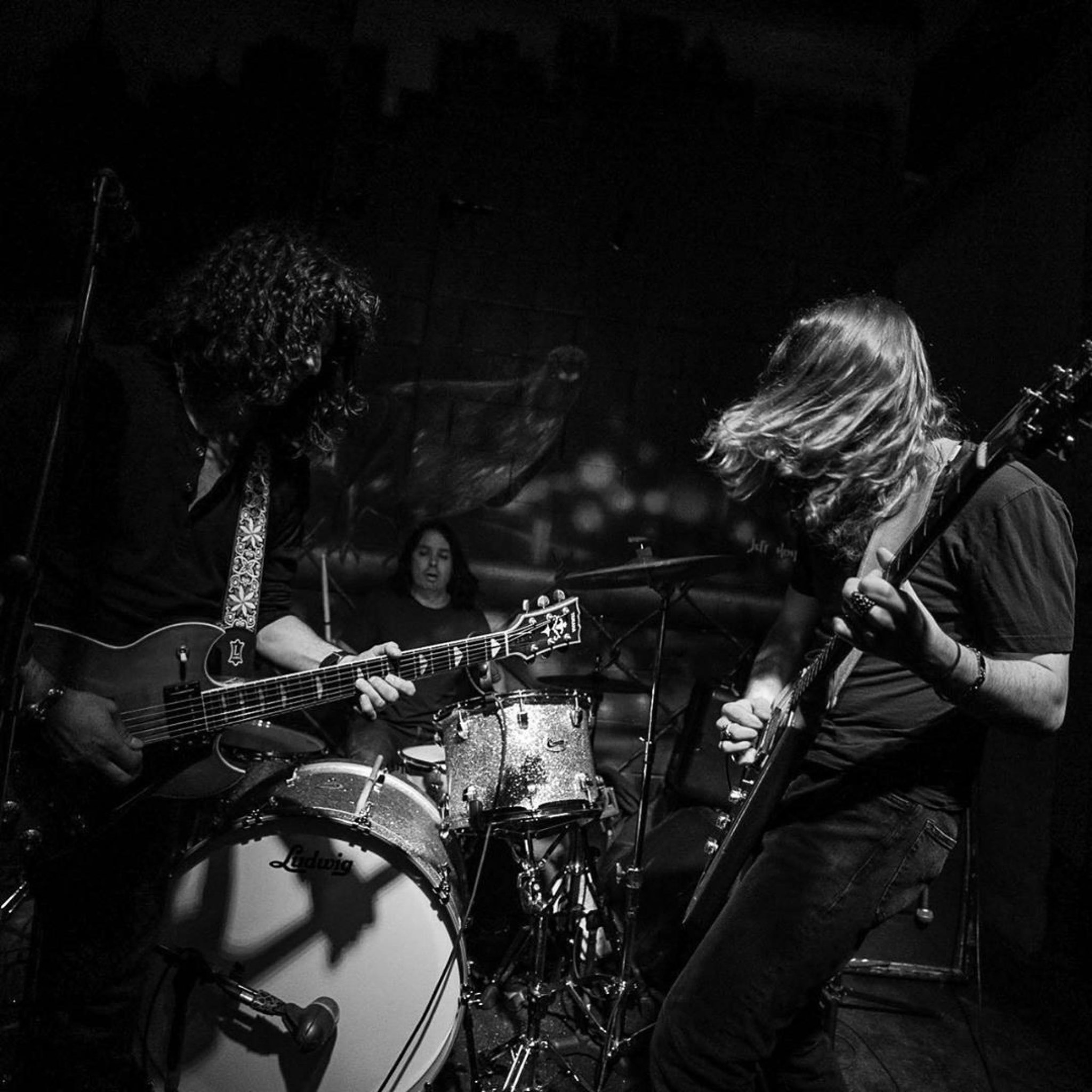Frank Viele Talks ‘The Trouble with Desire,’ His Latest Album
New England-based artist Frank Viele brings emotional storytelling to his latest solo album, ‘The Trouble with Desire.’
A versatile lyricist, songwriter, and vocalist, Viele crafts a 13-track collection that delves deep into heartland rock while also weaving in elements of blues, folk, and jam-band energy. The album was shaped over years of writing alongside Jimmy Nutt and James LeBlanc. It is a vivid exploration of love, loss, and resilience.
We start off feeling good with the opening track, ‘Hearts We Left Behind.’ There are flowers in her hair, we’re staring into the blue… She’s gone, but somehow, he’s learned to take life’s lessons in stride and wave goodbye to them effortlessly. This is reflected in the catchy, carefree guitars and anthemic vocal melody. Massive drums swell and lead the way into a wailing lead guitar line, and a lingering organ sees the song out.
As we make our way to the title track, we sink into a bigger, broader sound. There’s decidedly more tension than in the last track. As he searches for the truth, Viele weaves sharp wordplay and clever rhymes, while sweeping guitars stretch into open space… We begin to hear an emphasis on two and four. There’s this fire, one that burns forever— all-consuming…
In track 3, ‘Mountains We Can Climb,’ that fire morphs, crescendoing into a new mantra: Nothing is impossible with her around.
Then, the heart of the album showcases the darker side of his human experience, including ‘Claws’ and its mournful, stepwise melody, and the stomping rhythm and grittiness of ‘Necessary Evil.’
The heaviness we acquire through life is something we carry with us everywhere we go. In ‘Sleepless Nights Alone,’ the ghost is the lingering scent of perfume. Delicate, folk-inspired drums and chimes create this light, rolling texture… This song offers a sense of levity that feels, somehow, simultaneously soothing and haunted.
We hear the wizened familial themes inside ‘Trying to Raise a Man,’ and a wildness that is almost vengeful in ‘Lo-Fi Goodbye.’
‘Inside The Trouble’ with ‘Desire,’ Viele reflects on a plethora of times long past—ones that say, “Hey, I grew up too fast,” but also, “Hey Mom, I get it now.” We find bravery in the near-dissonant, ascending chord progression of ‘I’m Not Scared of The Thunder’ and hope—yet also impermanence—inside ‘Dive Bar Poet.’
As the album progresses, ending tonics/resolutions become rarer, leaving our emotions suspended. The cyclical ‘Caffeine & Cabernet’ drifts through with its ethereal, film-esque guitar before surging into the blazing, motif-driven “Putting Out Fires.”
As a whole, ‘The Trouble with Desire’ closes, leaving us fiery and fulfilled. As the final chord fades out, we can still feel the echoes of dancing until dawn, deep inside our bones…

“Life is poetry. Music is poetry.”
Your album cover is so interesting! There’s a fire in every window, a man with his guitar, a candle, and a photograph outside on a bench. What does it mean to you, and who created the art?
Frank Viele: The art was created by a dear friend of mine in Tennessee named Yvonne Zorn. The artwork was inspired by the lyrics throughout the record. The album itself is centered around the idea of finding strength and perseverance inside a heroically challenging time—the idea of finding peace and understanding within the chaos to discover your inner strength and purpose. The burning candle is from ‘Caffeine & Cabernet,’ the picture in a broken frame is from ‘Necessary Evil,’ the rose growing out of concrete is from ‘Mountains We Can Climb,’ and the blown stereo speakers are from ‘Lo-Fi Goodbye.’
How long did this LP take?
I recorded 10 tracks in six days originally. Then I went back to Muscle Shoals a year later and recorded 11 more in seven days. I picked 13 of the 21 tracks that told the story I wanted to tell, and the album was born. But there was definitely a six-month period where I was just titrating between all of the tracks to determine where I wanted to be creatively with the album. The recording process, however, was pretty fast in retrospect.
What was it like to work with James LeBlanc (composer) & Jimmy Nutt (composer)?
It was incredible. I basically had one producer behind the glass dialing everything in—Jimmy—and the other on a guitar with me and my band in the live room—James. It added so much to the record in that respect. They’re also both just simply incredible humans, and having those guys believe in me assuredly elevated the record because it gave me a level of confidence in the studio I can’t say I’ve ever had before. I’m happy to say I’m already in the early phases of pre-production with that team to make another record, and I’m incredibly excited for it.
What song was the most difficult to record, and which one is your personal favorite?
The one that was the most difficult to record was most likely ‘Claws.’ It was a newer sound for me, and I was inside the track with a 12-string electric guitar tuned to DADGAD, trying to create a sound I heard in my head but couldn’t quite express in words to the rest of the guys. It was also the first time I’ve sung in that register as a lead vocalist on an album, so it was new for me to hear myself that way. When it was done, I thought my voice sounded weird, but everybody else around me loved it. They were right, and I eventually got used to hearing my voice in that way. In the end, it became one of my favorite tracks.
But my absolute number one favorite on the record is ‘Trying to Raise a Man.’ I wrote that song for my mom, and I’ll be singing it for the rest of my life.
What do you mean by ‘Lo-Fi Goodbye’?
Sometimes in relationships, people say goodbye because they’re scared of something different. But it’s not really goodbye. It’s more like a “Hold on, I gotta figure this out” kind of thing because the glue has already started to set. Things are a bit unconventional, nights are a bit blurry, but you’re absolutely certain that’s your forever person—no matter what metaphorical monsters you have in your head that you gotta slay along the journey. So the goodbye happened, but it was not wholehearted nor fully truthful. I consider it a low fidelity goodbye.

Finally… Do you read poetry? If so, who? What do you think of Bukowski?
Life is poetry. Music is poetry. Half the songwriters I love—from Tom Waits to Tim Hardin to Paul Simon—are all poets, I think. Heck, sometimes I’d consider Homer Simpson to be a poet.
That said, I don’t read as much traditional poetry as I’d like to. I think I got into reading lyrics inside CD and vinyl jackets at a young age and just never turned back. Nowadays, I still listen to a ton of music, and then every once in a while, I get lost in books about society. I find human interaction and the study of it fascinating, so most of the things I read fall into that space. I’m currently finishing The Book of Charlie by David Von Drehle, which tells the true story of a man who lived to 109 years old.
In regards to Bukowski, from what I have read, there seems to be a lot of in-your-face humanity—for better or worse—in his writing, and at times, I find that intriguing. But really, if you read his biography, I think his art is the result of a hard-fought life and a deep anger that is expressed in both an immensely aggressive and simultaneously artistic way. I haven’t read enough to give an in-depth analysis, but knowing me, this question is gonna make me pick up a few books and dig in.
Headline photo: Donato Biceglia
Frank Viele Official Website / Facebook / Instagram / Twitter / Bandcamp / YouTube




